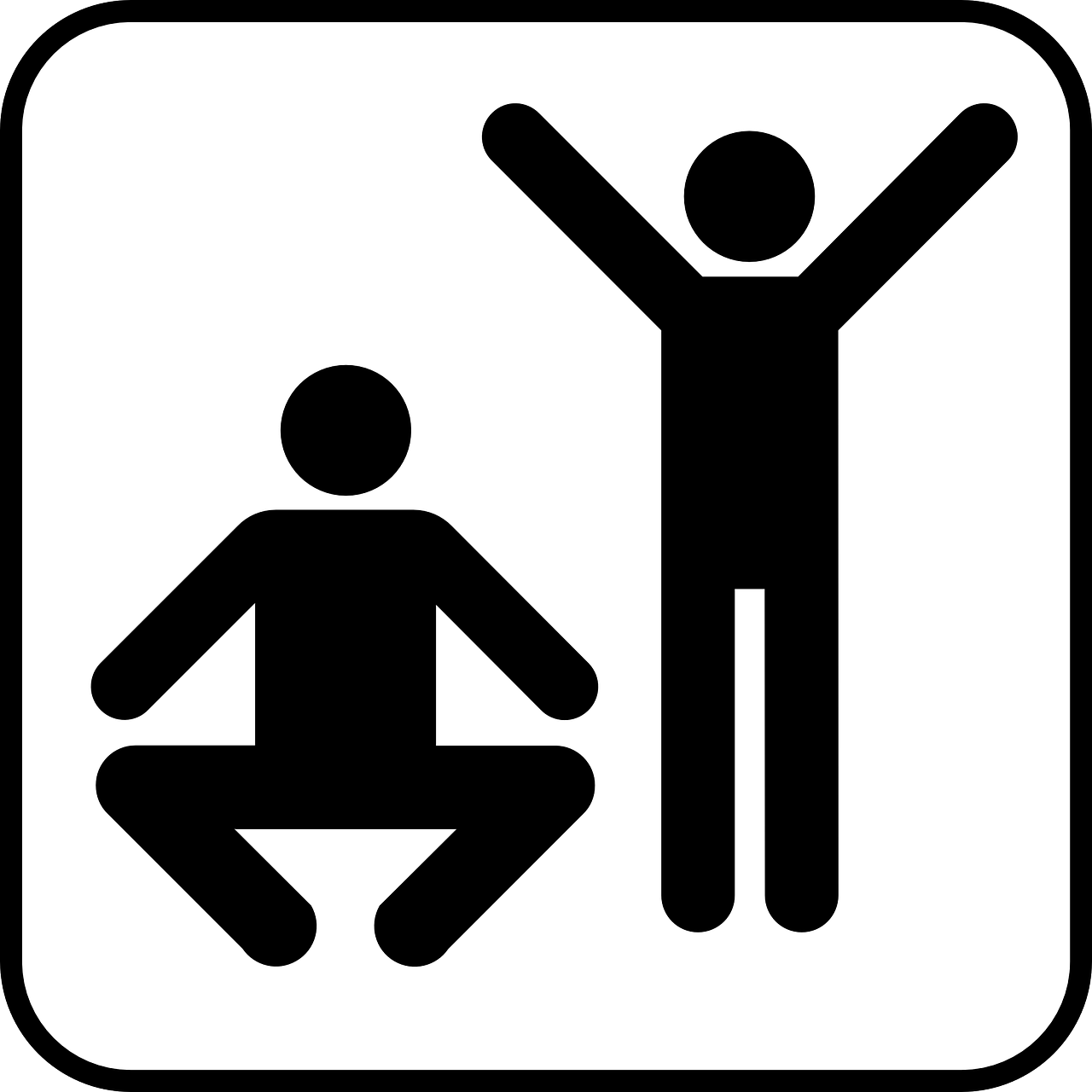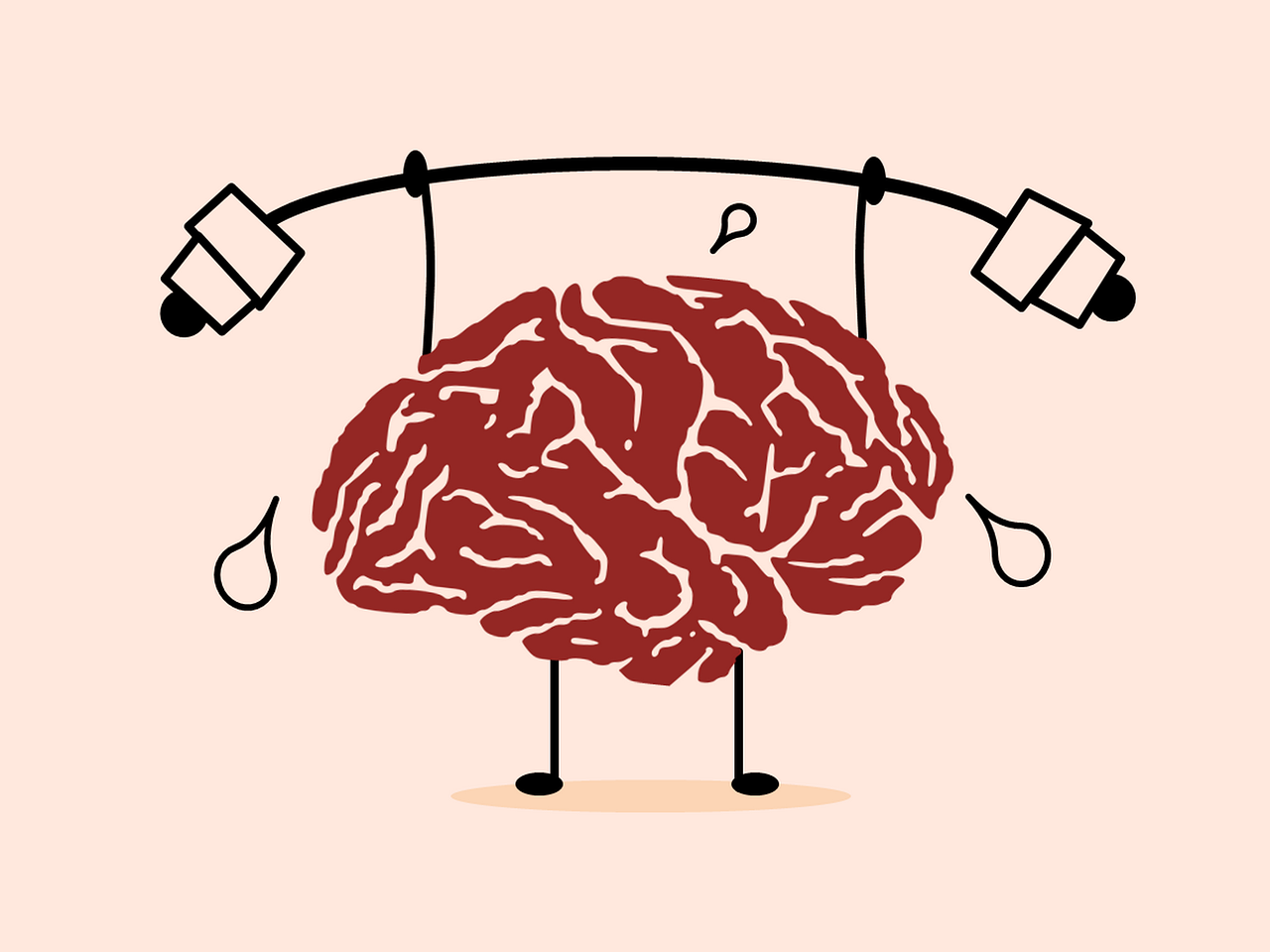Did you know that living with COPD can make it more difficult to think, make decisions, and remember things? It's true; studies show that COPD can cause mild cognitive impairment, a condition that affects your memory and other mental functions.
Unfortunately, many people are unaware of, or underestimate, the effect that COPD can have on your brain. Because of this, many COPD patients experience mental decline without ever realizing that their disease could be the cause.
This is a shame, especially because COPD-related mild cognitive impairment is both treatable and preventable. But in order to avoid it or minimize its symptoms, you have to understand what it is and what is has to do with COPD.
That's why, in this post, we're going to explain how COPD causes mild cognitive decline and how to recognize it if you have it. We'll also explain what you can do to prevent COPD-related memory loss and how to treat it if it appears.
Many people with COPD have to deal with mild cognitive impairment at some point or another, and it's important to know what you can do about it and what to expect if it happens. That's why we've included a wealth of practical knowledge, helpful advice, and effective techniques in this guide to help you manage memory problems and other cognitive symptoms caused by COPD.
What Does Mild Cognitive Impairment Mean?
In general, mild cognitive impairment (MCI) is a condition that causes minor problems with memory, focus, problem-solving, and attention. It happens to many people as they age, but respiratory diseases like COPD can both trigger and accelerate the condition.
Many people who experience forgetfulness or worry their brain is not as “sharp” as it used to be are actually experiencing the symptoms of mild cognitive impairment. However, MCI is slightly worse than the normal changes to memory and cognition you'd expect to see with age alone.
{{cta('fa8abc2a-1e88-4fa3-82fd-1cb5b9ed43b2','justifycenter')}}
Mild cognitive impairment happens when the brain's cognitive functions are slightly lower than they should be. It can result from both temporary problems (e.g. oxygen deprivation) and permanent changes (e.g. structural damage) that happen to the brain.
Mild cognitive impairment is very common, affecting about 10-20 percent of people over the age of 65 and about 36 percent of people with COPD. Fortunately, it is a treatable, and sometimes even reversible, condition that can improve with diet, exercise, and other lifestyle changes.
It's important to note that the symptoms of mild cognitive impairment are often very subtle. Some people notice these symptoms on their own, but many don't recognize the signs of MCI until a friend or family member points it out.
Here are some of the most common signs and symptoms of COPD-related memory loss and MCI:
- Forgetting things like events and appointments often
- Forgetting words or struggling to come up with the right vocabulary more often
- Losing or misplacing things more often
- Feeling overwhelmed when faced with problems, making decisions, or making plans
- Difficulty understanding instructions or doing activities that require multiple steps
- Struggling to focus on simple tasks like reading, watching a movie, or having a conversation
- Difficulty finding your way around familiar places or environments
- Increased impulsive behavior or poor judgment
Sometimes, mild cognitive impairment is split into two distinct categories: memory-related or “amnestic” MCI, and MCI that affects thinking skills like decision making and completing tasks with several steps. Some people with MCI experience just one or two symptoms, while others experience a wider rage of cognitive problems.
 |
| Image from www.amenclinics.com |
In the words of Charles Emery, a COPD researcher from Ohio State University, “COPD-related cognitive impairment usually isn't noticeable to the untrained eye, but it can be a serious problem.” That's why people with COPD should be more aware of their risk for cognitive impairment and more familiar with what it looks like in everyday life.
Even if you don't realize it's happening, mild cognitive impairment can make daily living more difficult and have rippling negative effects. Even minor memory problems, like misplacing bills or forgetting to turn off the stove, can cause serious problems in everyday life.
Minor cognitive impairment can also make it difficult to manage your disease and keep track of your medications and other treatments. For example, it could cause memory problems that lead you to use your medications incorrectly or skip doses accidentally, making you more vulnerable to life-threatening exacerbations, quicker disease progression, and other disease complications.
Experiencing difficulties with memory and concentration can also cause you to feel frustrated and stressed, even if you aren't aware that your symptoms are caused by MCI. This can lead to mental disorders like anxiety and depression, especially if the condition is left untreated for too long.
Luckily, COPD-related cognitive impairment can be treated and managed to minimize the symptoms and its effect on your quality of life. With healthy lifestyle changes and proper treatment, you may even be able to regain some or all of the cognitive ability you've lost, especially if you catch it early on.
Importantly, early treatment for mild cognitive impairment can prevent future cognitive decline and more serious conditions like dementia. Because it often results from low blood oxygen levels, recognizing mild cognitive impairment can also alert you to other problems that you need to address in order to better manage your COPD.
The Relationship Between COPD and Memory Loss

At first, it might seem strange that COPD, which is primarily a respiratory disease, could cause mental deficiencies and memory problems. However, a variety of studies have confirmed that there is a direct link between lung function and cognitive decline.
Research from the Mayo Clinic, for instance, found that having COPD can double your risk for mild cognitive impairment, including memory loss. The risk is even higher for people with more advanced COPD and people who use supplemental oxygen therapy.
Some people experience general cognitive impairment that affects many areas of cognition, while others only experience difficulties in one or two areas. Specific cognitive abilities that tend to be affected are memory, information processing, attention, concentration, executive function, and self-control.
However, research also shows that people with COPD—even advanced COPD—only show very slight cognitive decline. According to one study, people with severe COPD scored, on average, just one point less than people who didn't have the disease on a 35-point scale of cognitive ability.
But even though this amount of cognitive decline might seem trivial, it is not something you should ignore. Mild cognitive impairment is enough to affect everyday life and impair your ability to manage your COPD.
That's why it's important to look out for even minor symptoms, especially since cognitive impairment is much more treatable in the early stages. Recognizing the earliest signs of MCI and taking them seriously is a necessary step toward making the changes that can minimize your symptoms and prevent more serious cognitive issues in the future.
How COPD Causes Cognitive Impairment

To understand why COPD causes cognitive impairment, you have to realize that COPD is not just a simple breathing disorder. It is a disease that causes inflammation, strains your heart, and starves your body of oxygen.
One of the key links between COPD and MCI is low blood oxygen levels, known as hypoxemia, which gets worse in the later stages of the disease. This lack of oxygen affects every organ in your body, but it is especially harmful to your heart and brain.
The brain is particularly sensitive to the effects of hypoxemia because it needs so much oxygen; the brain uses up a large amount of energy and needs a continuous flow of oxgen-rich blood in order to function. Because of this, low blood oxygen levels are particularly bad for your brain, and they can lead to brain hypoxia and cognitive impairment.
As a result, memory and cognition problems are much more common in people with more advanced and severe COPD. As the the lungs lose more and more of their ability to function, blood oxygen levels drop lower and more often than they did before, increasing the risk for cognitive symptoms.
However, hypoxemia is not the only reason that people with COPD experience mild cognitive impairment. Researchers believe that a lack of physical activity could also be a cause.
After all, many studies have shown a strong link between regular exercise and better cognitive function. There are many reasons for this, but improved cardiovascular health and circulation seems to play a major role.

Unfortunately, inactivity is a huge problem among people with COPD because their breathing symptoms make exercise very difficult. However, this lack of physical activity worsens COPD symptoms and causes the disease to progress more quickly.
The result is that it becomes harder for your body to supply enough oxygen to your brain and the rest of your body. This can lead to a variety of complications including cognitive impairment and dementia.
COPD also significantly increases your risk for cardiovascular disease for many different reasons, including hypoxemia, lack of exercise, and other disease complications. Cardiovascular disease is a well-known cause of cognitive impairment, in part because it causes poor circulation and damages the blood vessels in your brain.
COPD also causes chronic inflammation, which is a major risk factor for both heart disease and cognitive decline. Researchers believe this happens in part because long-term inflammation causes harmful changes to the blood vessels and tissues in the brain.
Researchers also suspect that a history of smoking—which the vast majority of people with COPD have—can make you more prone to mild cognitive impairment. One study showed, for instance, that MCI is much more common among people who have smoked, are currently smoking, or who are exposed to secondhand smoke for at least one hour per week.
COPD and Dementia

Studies show that both COPD and mild cognitive impairment can significantly raise your risk for dementia. That's because the same conditions that cause COPD-related cognitive impairment can also cause long-term damage to your brain.
Dementia is a general, umbrella term that is used to describe a variety of different types of cognitive decline. It is much more severe than mild cognitive impairment, but it often starts with MCI that gets worse and progresses to dementia over time.
Here are some of the major signs and symptoms of dementia:
- Memory loss that significantly interferes with daily life
- Difficulty completing simple, familiar tasks
- Confusion about dates, places, and how much time has passed
- Difficulty making plans, solving problems, and keeping up with responsibilities
- Difficulties with language, including speaking, writing, keeping track of conversations, and coming up with words
- Frequently misplacing things and forgetting about major events
- Social withdrawal, including giving up on hobbies or work
One of the main ways that COPD leads to dementia is by depriving your brain of oxygen. If your blood oxygen levels stay too low for too long, it can cause permanent damage to the blood vessels and tissues in your brain.
Other COPD-related symptoms and complications can also cause dementia, including chronic inflammation and heart disease. Basically, most of the conditions that can cause mild cognitive impairment have the potential to also cause dementia if they are severe enough or happen frequently enough.
However, it's important to note that, even though mild cognitive impairment and memory loss can be early signs of dementia, they don't necessarily mean that you will develop the disease. For many people with the condition, MCI stays stable or even improves with time.
 |
| The appearance of a normal brain versus a brain with severe Alzheimer's Disease, a form of dementia. |
On the other hand, cognitive problems could be a sign that your COPD could cause, or is causing, serious damage to your brain. This is more likely to happen if your symptoms are severe or you suffer from frequent, severe hypoxemia.
If you have COPD and experience any symptoms of cognitive impairment, you need to be particularly diligent about managing your disease. By taking your medications, getting regular checkups, and living a healthy lifestyle, you can minimize your COPD symptoms and keep your blood oxygen levels high.
In many cases, it is possible to prevent COPD-related cognitive impairment and dementia with healthy living and proper COPD treatment. However, in order to do this, you might need to make some serious changes to your diet, your lifestyle, and how you manage your disease.
How to Prevent & Minimize Memory Loss Caused by COPD

If you have COPD, the best way to prevent memory loss and cognitive impairment is to keep your heart and lungs in the best shape possible. That means managing your COPD properly and building healthy habits that help you keep your body strong.
If you already have mild cognitive impairment, these same methods may even help you reverse your cognitive symptoms. At the very least, making healthy changes can prevent more severe cognitive issues and make a noticeable difference in your health and quality of life.
In the next sections, we'll show you a variety of simple things you can do in your daily life to boost your cognitive ability and prevent cognitive decline. The earlier you take action the healthier your brain will be as you continue to manage your COPD.
Exercise Your Body

Exercise is an irreplaceable tool for keeping your heart, lungs, and brain healthy, especially if you have COPD. It can improve your circulation, improve your ability to breathe, and help your body get more oxygen to your brain.
Studies show that physical fitness reduces cognitive decline caused by aging and even improves general cognitive ability. Other studies on people with COPD even suggest that exercise alone can improve at least some symptoms of cognitive impairment.
On the other hand, lack of physical activity weakens your heart and lungs, worsens breathing problems, and leads to a variety of other health complications. Inactivity is particularly hard on your cardiovascular system, leading to high blood pressure, heart disease, and worsened hypoxemia.
That's why it is so vitally important to get regular physical activity if you have COPD. That means getting at least 20-30 minutes of exercise, including light to moderate-intensity aerobic exercise (e.g. walking, swimming, or jogging), at least 3-4 times per week.
While this might seem daunting at first, don't let it scare or discourage you. You don't have to jump in all at once; you can start small and work at your own pace.
You can start with simple, low-impact activities like walking, stretching, and doing light aerobic exercises. Anything you can do to add more physical activity to your schedule will help, including hobbies like gardening.

You could also join a gym, try a sport, or take regular walks in a park you enjoy nearby. There are many different ways to exercise, and all you have to do is find a few activities that you can stick with and enjoy.
Building the habit can be difficult, but it is certainly worth the effort it takes. It can not only significantly reduce your risk for cognitive decline, but it can also strengthen your heart, reduce your symptoms, and delay the progression of your COPD.
To help you get started, we've put together several guides full of practical tips and tricks for exercising with COPD. Take a look at any of them by clicking the links below:
- Hobbies and activities that are well-suited for people with COPD
- Exercises you can do at home to improve your COPD
- How Pulmonary Rehabilitation can improve your ability to exercise with COPD
- Breathing techniques you can use to reduce shortness of breath when you exercise
Exercise Your Brain

Much like physical exercise helps keep your body strong, mental exercise can help you keep your brain and cognitive functions strong. That's why it's important to keep your brain active as you age, and especially if you suffer from COPD.
Research shows that one of the best ways to do this is by learning new things and doing activities that require mental focus. These kinds of activities strengthen important neural pathways in your brain and can even improve your mental function.
Activities that exercise your brain include things like reading, social activities, and creative endeavors like writing and painting. Other hobbies like playing chess or doing puzzles can also help keep your brain sharp.

Studies show that learning a new skill like playing an instrument or speaking a new language is particularly effective at preventing cognitive decline. You can also pick up new skills by taking a class at a local college or community center, or by joining an activity club.
In general, making an effort to use your brain in new ways and learn new things can help you preserve your memory and cognitive skills as you live with COPD. It can also reduce your chances for developing more serious forms of cognitive impairment, including dementia.
Maintain a Healthy Weight

Being underweight or overweight is bad for your brain and can increase your risk for cognitive issues, including memory problems and MCI. Unfortunately, many people with COPD struggle to


 So we can find the best portable oxygen concentrator for your needs!
So we can find the best portable oxygen concentrator for your needs!








Duke Reeves